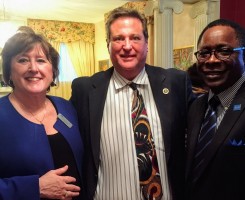The Tennessee Comptroller of the Treasury wrote a more detailed brief on Collaborative Conferencing in 2021. We recommend all policymakers read their study.
Collaborative Conferencing is the process by which local boards of education and their professional employees meet, either directly or through representatives designated by the respective parties, to confer, consult, and discuss matters relating to employment. The process of collaborative conferencing includes the exchange of information, opinions, and proposals among the conferencing parties, as well as the use of the principles and techniques of interest-based collaborative problem-solving (IBCPS).
Our organization supports the right of employees to discuss their working conditions, and always have; however, a failed Industrial era model dubbed Collective Bargaining was previously utilized. Numerous researchers such as Michael Lovenheim, Alexander Willen, Andrew Coulson, Caroline Hoxby, Agustina Paglayan, and Terry Moe criticized this approach. The term “collective bargaining” was coined in 1891 by British socialist reformer Beatrice Webb.
Recognizing that this contentious 18th Century industrial model did not serve teachers and students in the 21st century, the Tennessee General Assembly made changes to the law in 2011. This more modern approach to addressing issues and removing barriers to cooperation, while including more voices on working conditions, is called Collaborative Conferencing. It has also been somewhat problematic, even though the intent was positive.
We disagree with some of the items like differentiated pay plans and other incentive compensation programs, including stipends, and associated benefits, being excluded. The law has a clearly established a timeline for how this process must be completed. Any time the specifics of a law that are clearly included in the legislation are being ignored it creates a risk for the entire result to be invalidated outright. All parties involved should want to ensure that the process is followed lawfully so that a Collaborative Conferencing agreement is successful.
In particular, the timeline written into the collaborative conferencing law was established to interact with school district budgeting processes, which align with City and County government budget processes and the state budgeting processes. Items that require funding are not effective until the local funding body has approved such funding in the budget. If the amount of funds appropriated is less than the amount required, the parties may continue to confer to reach agreement within the number of funds appropriated. It is a cycle.
Deviation from that cycle in the bureaucratic processes make alignment with local, state, and federal budgets difficult. Whether or not we agree with the timeline established in the law is moot. It is the law. Perhaps it is time that we look at needed changes to the law. However, until the law is changed, we have no other option but to follow the law.
The goal of collaborative conferencing has always been to include more, not fewer, teacher voices in the debate for teacher working conditions. It is a means to express an opinion and work toward solving disagreements on issues such as salaries or wages, grievance procedures, insurance, fringe benefits, working conditions, leave, and payroll deductions. Payroll deductions for political activities are expressively forbidden. It is also important to be reminded that state organizations do not initiate collaborative conferencing; rather, it is done by local educators who may be members of any organization.
Fortunately, collaborative conferencing is not the only manner to address critical employment issues. Working outside of the conferencing process with superintendents and other elected leaders may be much more beneficial, especially since the conferencing process has not been enacted widely across the state.
In addition, rather than an MOU (Memorandum of Understanding), many of these items should be placed within board policies to be more effective for educators, thus making it more difficult to take away from educators. Public education in Tennessee wins when we all work together through civil discourse to address our considerable issues.
##
JC Bowman is the Executive Director aof Professional Educators of Tennessee, a non-partisan teacher association headquartered in Nashville, Tennessee.













